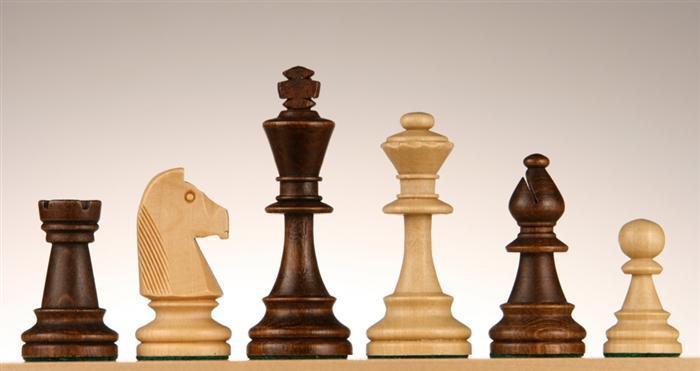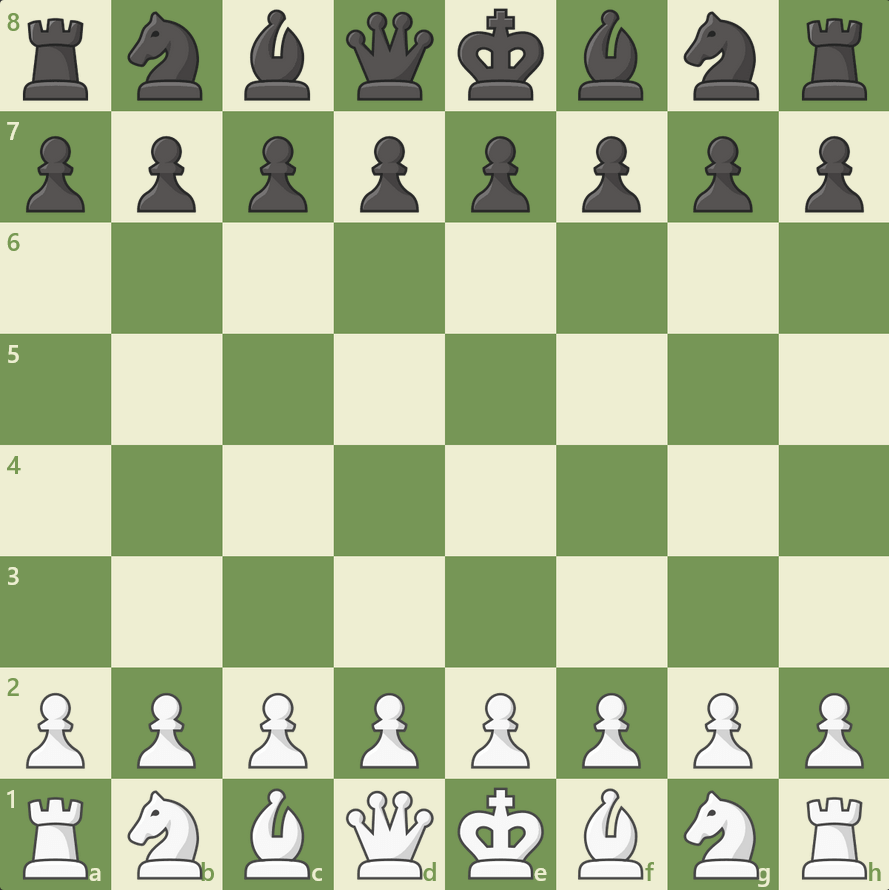Chess Prodigies: How Young Talents Shape the Game
Methods for Chess: Unlocking the Keys to Grasping the Game
Chess techniques encompass a series of techniques crucial for success. Comprehending the basics is necessary for any type of player. Each phase of the game-- from openings to endgames-- calls for a special method. Grasping these aspects can cause substantial advantages. The journey does not finish with basic understanding. There are deeper layers to discover, revealing the intricacies that can absolutely raise one's game. What exists beyond the surface area of these basic approaches?
Understanding the Principles of Chess
While numerous players concentrate on innovative strategies and approaches, recognizing the principles of chess is essential for anyone seeking to boost their game. The structure of chess begins with the regulations, which dictate how each piece steps and captures. Experience with the board's design and item values is vital, as it aids gamers assess placements and make educated choices.
Additionally, understanding basic principles such as control of the facility, item development, and king security prepares for effective gameplay. Players should discover the value of preserving pawn structure and acknowledging threats, as these aspects can greatly influence the outcome of a suit.

Establishing a Winning Opening Strategy
An effective opening technique in chess is vital for developing a helpful placement early in the game. Gamers frequently concentrate on vital principles such as piece advancement, control of the center, and king safety and security. Establishing pieces successfully permits higher flexibility and tactical chances, while occupying the central squares boosts influence over the board.
Opening strategies can vary significantly, from hostile lines aimed at fast assaults to strong formations that prioritize protection and steady growth. Knowledge with usual openings, such as the Ruy Lopez or Sicilian Defense, can give gamers with an arsenal to draw from and adapt to opponents' responses.
In addition, preserving versatility in one's opening approach is necessary, as stiff play can lead to predictable patterns conveniently exploited by well-informed challengers. Eventually, a winning opening method sets the stage for a successful middle game, leading the way for victory.
The Significance of Board Control
Board control serves as an essential facet of chess strategy, significantly affecting the result of the game. Reliable board control allows a player to determine the rate and circulation of the match, giving chances for critical development while limiting the challenger's options. By inhabiting vital squares, specifically in the center, gamers can improve their piece mobility and produce stronger settings.
Managing the board additionally assists in far better coordination amongst items, making it possible for tactical mixes and defenses. Chess. This benefit commonly converts into raised pressure on the opponent, causing possible errors or mistakes. On the other hand, an absence of board control can leave a gamer vulnerable, as their pieces end up being restricted in movement and performance
Thus, grasping the art of board control is vital, as it lays the structure for successful maneuvers and lasting strategic preparation, inevitably identifying the victor in chess.
Tactics and Combinations: Searching For Hidden Opportunities
Revealing methods and mixes is vital for gaining an advantage in chess, as it enables players to make use of weaknesses in their opponent's placement. Tactical understanding includes identifying patterns such as forks, pins, and skewers, which can result in product gain or positional advantage. Players must continuously check the board for covert possibilities, reviewing potential hazards and actions.
Combinations often involve a collection of actions that may originally appear counterproductive but can culminate in a definitive outcome. Chess. As an example, sacrificing an item to entice an opponent into a trap can move the game's momentum
Reliable calculation is crucial; gamers need to visualize a number of moves in advance to visualize the effects of their activities. Routine technique of tactical challenges can develop this ability. Inevitably, mastering tactics and combinations encourages players to confiscate control of the game, transforming relatively normal positions into winning opportunities.
Endgame Techniques: Protecting Your Triumph
Proficiency of methods and mixes lays the foundation for success, yet identifying how to transform benefits into victory during the endgame is equally important. In this stage of the game, players need to concentrate on item sychronisation and pawn promotion. Understanding key concepts such as resistance and managing essential squares can considerably improve one's opportunities of winning.
Reliable endgame strategies involve simplifying the setting when in advance, trading items to decrease the challenger's counterplay, and making use of the king proactively as a combating piece. Players need to intend to produce passed pawns that can advance towards promo, forcing the opponent to divert sources to protect against them.
Exercising common endgame scenarios, such as king and pawn versus king, can supply invaluable experience. Finally, maintaining persistence and insight during the endgame will frequently divide the amateur from the master, as crucial moments can arise unexpectedly.
Examining Your Challenger's Actions
How can a gamer properly anticipate their challenger's technique? Examining an opponent's steps is vital for developing an affordable side in chess. Gamers need to observe patterns in their opponent's play style, keeping in mind tendencies such as hostile or defensive maneuvers. By recognizing these patterns, a player can forecast potential actions and prepare counter-strategies.
Acknowledging the opening selections can expose a riches of info pertaining to a challenger's favored strategies. Gamers should likewise examine the timing and context of certain actions, checking out the underlying inspirations behind them.
Utilizing tactics such as keeping a versatile frame of mind and adjusting to changes in the game can Recommended Reading enhance a player's capacity to respond efficiently. On top of that, keeping track of their opponent's clock monitoring might give insights into their degree of confidence and convenience with the position. Generally, precise monitoring and analysis are important for preparing for and combating a challenger's strategy.
Constant Knowing and Enhancement in Chess

Continual learning is a fundamental facet of enhancing one's chess game, enhancing the logical skills developed with observing challengers. Gamers can improve their capacities by examining timeless games, checking out opening up concepts, and involving with literature on innovative methods. On the internet resources and chess engines offer invaluable devices for analyzing past games, enabling gamers to determine errors and refine their decision-making processes.
Taking part in competitions and check over here casual matches is essential for sensible experience, enabling players to use new understanding in real-time circumstances. Furthermore, signing up with clubs or online forums cultivates a community atmosphere where players can exchange insights, talk about approaches, and obtain useful comments.
Frequently evaluating one's very own video games and those of higher-rated gamers helps light up locations for renovation - Chess. By cultivating a frame of mind of lifelong discovering, chess lovers can continuously adjust, progress, and inevitably reach their possibility in this detailed and rewarding game
Frequently Asked Questions
What Are the most effective Chess Books for Beginners?
The most effective chess publications for newbies consist of "Chess for Dummies" by James Eade, "The Full Bonehead's Overview to Chess" by Patrick Wolff, and "Bobby Fischer Shows Chess." These sources offer essential techniques and vital expertise for Full Report new players.
How Do I Handle Losing Touches in Chess?

What Online Platforms Are Ideal for Exercising Chess?
Popular on the internet systems for exercising chess include Chess.com, Lichess.org, and Web Chess Club. Each offers numerous attributes such as challenges, tutorials, and affordable play, dealing with various ability degrees and preferences amongst chess fanatics.
Exactly How Can I Improve My Chess Visualization Abilities?
To enhance chess visualization abilities, one need to exercise psychological exercises, resolve problems, analyze games without a board, and slowly raise the intricacy of placements. Consistently playing blindfold chess can also considerably improve visualization capabilities.
What Are Usual Psychological Catches in Chess?
Common emotional traps in chess consist of overconfidence, time pressure, and the fear of mistakes. Players might also come down with verification bias, leading them to ignore better moves while focusing on formerly effective techniques.